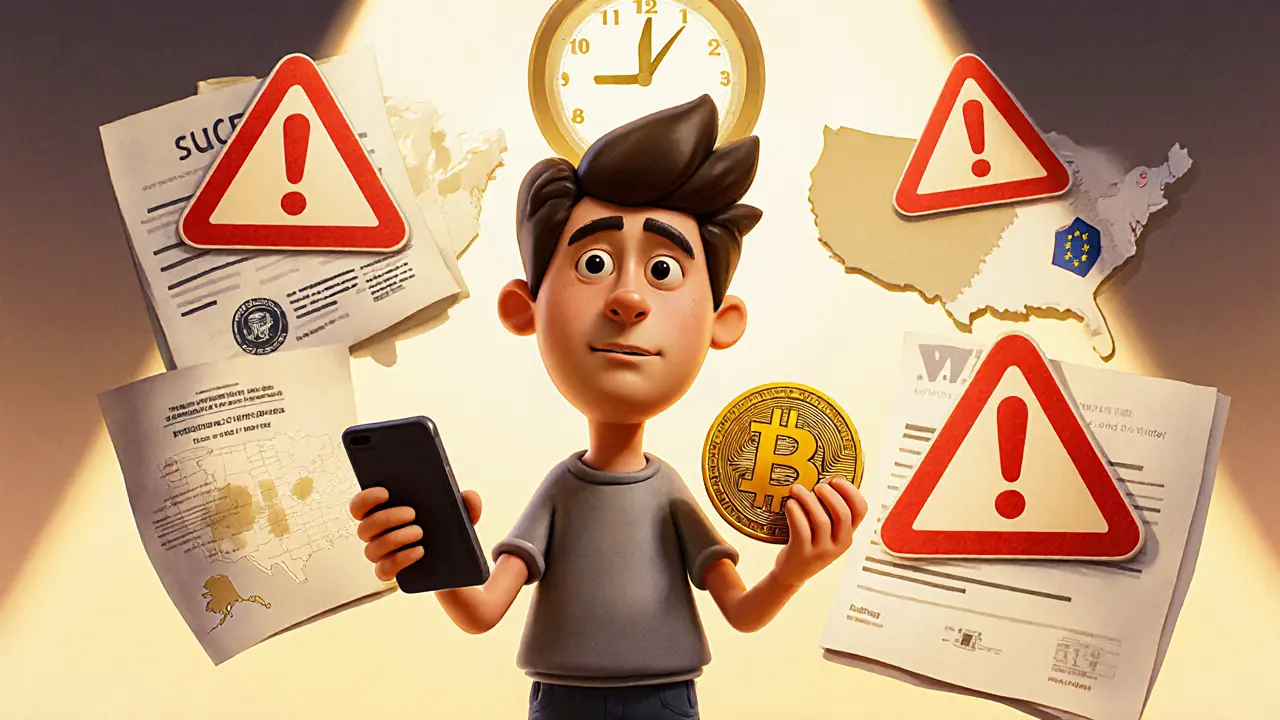Crypto Compliance: What It Really Means and How It Affects Your Trades
When you hear crypto compliance, the set of legal and operational rules that crypto businesses and users must follow to avoid penalties, fines, or criminal charges. Also known as cryptocurrency regulation, it's not something that only affects big exchanges—it touches every wallet, trade, and airdrop you touch. If you’re holding Monero, trading on a non-U.S. platform, or even claiming a free token, you’re already in the middle of it.
Think of OFAC sanctions, U.S. government restrictions that block transactions with specific individuals, companies, or countries. Also known as financial sanctions, it’s why Russian users can’t use Garantex without risking jail time, and why Cuban traders face sudden freezes on their funds. The U.S. doesn’t just ban exchanges—it seizes mining rigs in Angola, freezes Bitcoin in private wallets, and tracks every transaction linked to sanctioned entities. And it’s not just the U.S. The EU, UK, and even countries like Portugal are tightening rules around taxes and reporting, even if they don’t tax holdings outright.
Asset forfeiture, the legal process where governments take ownership of cryptocurrency tied to illegal activity. Also known as crypto confiscation, it’s how the U.S. built a $17 billion Strategic Bitcoin Reserve—not by buying it, but by seizing it from hackers, drug dealers, and unlicensed exchanges. If you’re using a platform without audits, like Blockfinex or SkullSwap, you’re not just risking your money—you’re risking having it seized if the platform gets flagged. Even privacy coins like Monero and Zcash aren’t immune. Governments don’t ban them outright, but they make them harder to cash out, forcing users into risky OTC deals or unregulated bridges.
Compliance isn’t about stopping innovation—it’s about survival. The exchanges that thrive aren’t the ones with the most coins or the lowest fees—they’re the ones that know where the lines are. Changelly Pro works because it avoids the U.S. and U.K. entirely. STON.fi v2 thrives because it’s locked to TON, a chain with no ties to sanctioned entities. Even yield farming and DeFi platforms like Kalata Protocol get shut down not because they’re scams, but because they don’t have the paperwork to prove they’re not.
What you’ll find here isn’t a list of rules—it’s a map of real-world consequences. You’ll see how a single airdrop like CHIHUA turns into a trap because no one verified the team. How Angola banned mining because hospitals were losing power. How tokenized stocks like BAon exist because compliance lets them bridge traditional finance and crypto without breaking laws. This isn’t theory. These are the cases that changed lives. And if you’re trading, holding, or just curious—you need to know where the line is before you step over it.
Staying Informed About Changing Crypto Regulations Worldwide
Crypto regulations are changing fast in 2025-with the U.S. easing enforcement, the EU enforcing MiCAR, and Asia leading innovation. Know what’s legal, where, and how to stay compliant without getting caught in the crossfire.
